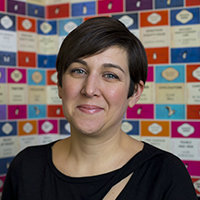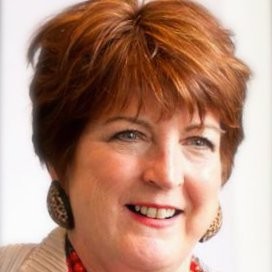Developing Executive Presence: Building Trust to Becoming an Inspiring Leader
Global Women’s Leadership Programme hosts a skills workshop for women on developing executive presence
The Global Women’s Leadership Programme at The Business School (formerly Cass) hosted a skills workshop with a select group of 35 women on the topic “Executive Virtual Presence: Communication Practices for Women Leaders” on Zoom on Wednesday 25th November.
Dr Canan Kocabasoglu Hillmer, Director of the Global Women’s Leadership Programme and Reader in Operations and Supply Chain Management, welcomed moderator Susan Young, Co-Managing Director of City Academy and trainer Emma Wainer, a speech and language therapist and Business Tutor at City Academy.
The virtual workshop sought to explore how to develop executive presence and why it is a vital skill for leaders. The session examined why listening is key and the importance of demonstrating authenticity over vulnerability, offering participants practical tips on how to use their body, breath and voice to demonstrate executive presence.
“We were delighted to invite Emma and Susan to provide expert and practical training for our community and it was great to see so much interaction between our attendees during the workshop. One of the core tenets of the Global Women’s Leadership Programme is to equip women with the skills, knowledge and confidence to become successful leaders - and demonstrating executive presence and inspiring others is a key skill for leaders,” said Dr Kocabasoglu Hillmer.

Why executive presence is a vital skill
Ms Wainer defined executive presence as the ability to inspire confidence in those you lead and helping them realise their potential. As a speech and language therapist, she helps her trainees communicate with power to be remembered for the right reasons. “Positively self-promoting, being able to own the room, trust your voice and make conscious choices about your body language are all skills that will benefit a leader,” she said.

City Academy is creative and performing arts academy, offering business training across London. “Getting heard as a woman can be a challenge. Since running City Academy, I have used the wisdom of performing arts in a business context through our executive leadership and speech training. In leadership, you need intellectual skills and analytical skills, but it is vital to show these skills with your physical presence,” Ms Young said.
In 2019, only 5 per cent of the FTSE 250 CEOs in the UK were women. “The playing field is not level. I urge all women to stop asking for permission, to take up space and to create environments that encourage everyone to share their ideas,” Ms Wainer said.
Using your body, breath and voice for executive presence
Psychological studies have found that it takes as few as five people in a room for a person’s perception of their speaking to evolve from a casual conversation to public speaking.
Public speaking is an artificial environment that can create stress for speakers. The solution to relieving stress triggers is to be aware of our physical responses and cues. “Energy moves up in our bodies when we are anxious and other people pick up on our anxiety. Breathing deeply and into the belly is a good way of maintaining our standing in a heated discussion,” Ms Wainer said.
Smiling and adopting an open body posture moves speakers along from a pathway of being known, to being liked and finally being trusted. “If you don’t get to the point of trust, people won’t come to you for advice or for business.”
In a virtual setting, she suggested thinking about your screen in thirds. The upper third of your screen should be the space above your head, the centre of the screen should be your face, and the lower third of your screen should be your shoulders and torso. Using this technique makes you seem more trustworthy as your audience can see you gesture and don’t feel like they are being lectured.

Listening is a key part of executive presence
When speaking in public, Ms Wainer maintains we should strive for excellence over perfection. “Aiming for perfection trips us up. Instead, I would like to invite speakers to aim for excellence as this allows ourselves to be present in our performance.”
To be present in a speech, a speaker should spend 50 per cent of their attention focusing on themselves and 50 per cent of their attention on their audience.
She urged the attendees to give themselves permission to make mistakes, to practise regularly in public so that they can fail upwards. “Speaking and developing executive presence are skills that can be developed. When you practise them, they become more embodied and innate.”
She also reminded the attendees to not be afraid of silence and to give themselves permission to take up time and space and allow their ideas to breathe.
Authenticity is key and not the same as vulnerability.
Ms Wainer warns that speakers must establish credibility before showing vulnerability. “Women often hedge their language or soften their language. We do this to build consensus, which is one of our superpowers. However, downplaying our knowledge or unnecessarily apologising can undermine our strength and intelligence,” she said. She suggested women swap “sorry for the slow response” with “thank you for your patience” and to erase diminishing statements such as “I might be wrong” from their lexicon.
She also stressed that showing authenticity is more important than showing vulnerability to be credible. “Allowing vulnerability to show won’t get us what we want if we haven’t yet proved our credibility. It will be more to be authentic to engage with the audience by showing passion,” she said. "Don’t speak to people to flatly, modulation becomes less interesting to listen to because we are being formal.”
Find out more about the Global Women's Leadership programme.
Emma Wainer is one of City Academy’s highly experienced business tutors who trained as a speech and language therapist and has a master’s in Voice Studies from the Royal Central School of Speech and Drama. She worked for nearly ten years as Operations Director at Penguin Events where she managed multidisciplinary teams to curate events for clients globally. As a high-performance coach, Emma has worked directly with clients to enable management teams to communicate and work more effectively together, and individuals to perform to their best. Having coached many conference speakers for events such as TEDx, Emma has experience helping clients present with clarity and confidence
Susan Young is co-Managing Director of City Academy. She joined in 2008 after completing her MSc in Organisational Psychology. Her experience includes being a global executive with extensive business leadership in organisations of varying size and across many sectors. She has held positions in marketing and management development with GE, Black & Decker and Laura Ashley, and was Managing Director-Europe for Aero Products International and First Alert. Her specific areas of commercial expertise are within marketing, business strategy and product development. She believes deeply in the power of performing arts training to help individuals, teams and organisations achieve their goals.
